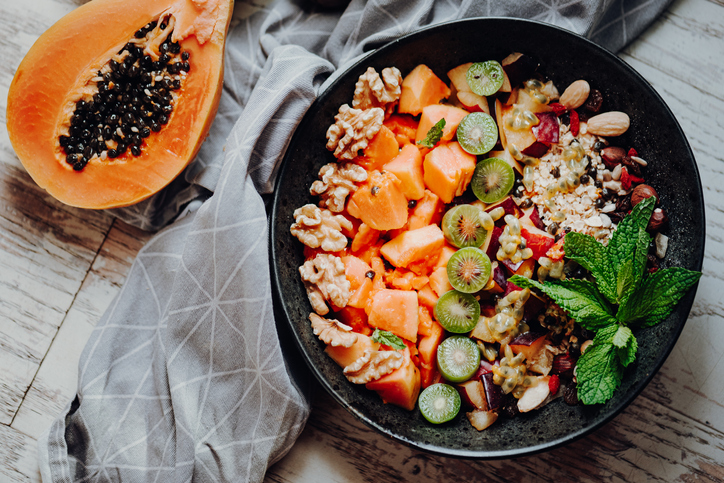There’s an emerging food trend gaining popularity in 2022: reducetarianism. It’s a diet for those who cut back on eating animal products but don’t go full-blown vegan or vegetarian.
Anyone who reduces their consumption of meat, fish, dairy, and eggs but doesn’t fully stop eating them is a reducetarian. Of course, many people have practiced reducetarianism at some point — the plant-heavy diet itself isn’t anything radically new. But it wasn’t until fairly recently that it’s been assigned a term with a definition, launched a movement, and sparked a food trend.
With a name, nonprofit campaign, and media buzz attached to this diet comes more awareness of its benefits and how more plant-curious eaters can begin to limit animal products in their diet.

Why reducetarianism?
There’s a reason why expert nutritionists at Whole Foods and several other dietitians around the world are eyeing reducetarianism as one of 2022’s biggest health food trends. The diet has several huge benefits for both individuals and the world — and people are taking notice.
It’s healthy
People are always looking for a new, trendy diet to try, and some turn to reducetarianism simply to eat healthier. According to the American Heart Association, reducing animal product consumption improves your health by decreasing your chance of heart disease, certain types of cancers, strokes, diabetes, and many other chronic illnesses.
It’s animal-friendly
Other reducetarians are passionate about minimizing animal cruelty. Perhaps they use reducetarianism as a stepping stone to becoming vegetarian or vegan instead of going cold turkey. Or, they don’t see themselves never eating a hamburger or ice cream again but want to limit their intake of food made from animals.
It helps the environment
Those who care about their environmental footprint are also motivated to try reducetarianism. Because animal agriculture is extremely harmful to the environment, eating lots of meat contributes to that global impact.
Whatever the reason, reducetarianism appeals to people because it does not promote an “all-or-nothing” approach the way that veganism and vegetarianism do. Food lovers can still eat the meat or dairy products they’re accustomed to but, like with any diet, in moderation.
How to go reducetarian
Reducetarianism is all about gradually lowering the number of animal products consumed in relation to one’s typical diet. There’s no set amount that you can or cannot have — it’s personal to you.
Start small
If you currently eat meat every single day, try ditching it just one day a week to start. You can also join the popular “Meatless Mondays” trend to begin your reducetarian journey. Same with dairy, eggs, and fish. If you’re used to drinking milk about twice a day, try cutting it down to once. Or if you have eggs for breakfast four times a week, try only having them three times.
You can also cut out certain meat and dairy products that you could live without and keep only the ones you absolutely love while replacing those you cut with meatless options or plant-based foods.
Reduce the amount more and more over time until you’re satisfied with how much you’re consuming. You can even keep a log to track your progress. Again, it’s up to you, and you don’t need to reduce in every category.
Go plant-based
As you reduce, start adding in veggie versions of foods like hamburgers, chicken, and others that offer veggie options. Eat more salads and incorporate more fruits and vegetables into your daily diet to make up for the nutrition you’re dropping and even gain some. The Reducetarian Foundation has a great list of meal plans to help you get started.
Eat ethically
As a bonus, when they do choose to eat animal products, some reducetarians seek out meat, dairy, and eggs that are more ethically made than some of their counterparts. This includes grass-fed meat, pasture-raised eggs, or natural milk, to name a few examples.
If you share similar values behind vegetarianism and veganism but are either too intimidated to go those routes or wouldn’t want to, reducetarianism could be for you.
The hot food trend of 2022 is starting to catch on with people interested in bettering their own health and decreasing their diet’s harmful impact on animals and the environment. While giving up the meat and dairy products you’ve eaten your whole life could seem daunting, reducetarianism encourages starting small to reduce animal product consumption.
People nowadays are more aware of both their environmental footprint and how the food they eat impacts their own health. That’s ultimately what makes reducetarianism one of 2022’s biggest buzzwords in the food world.




